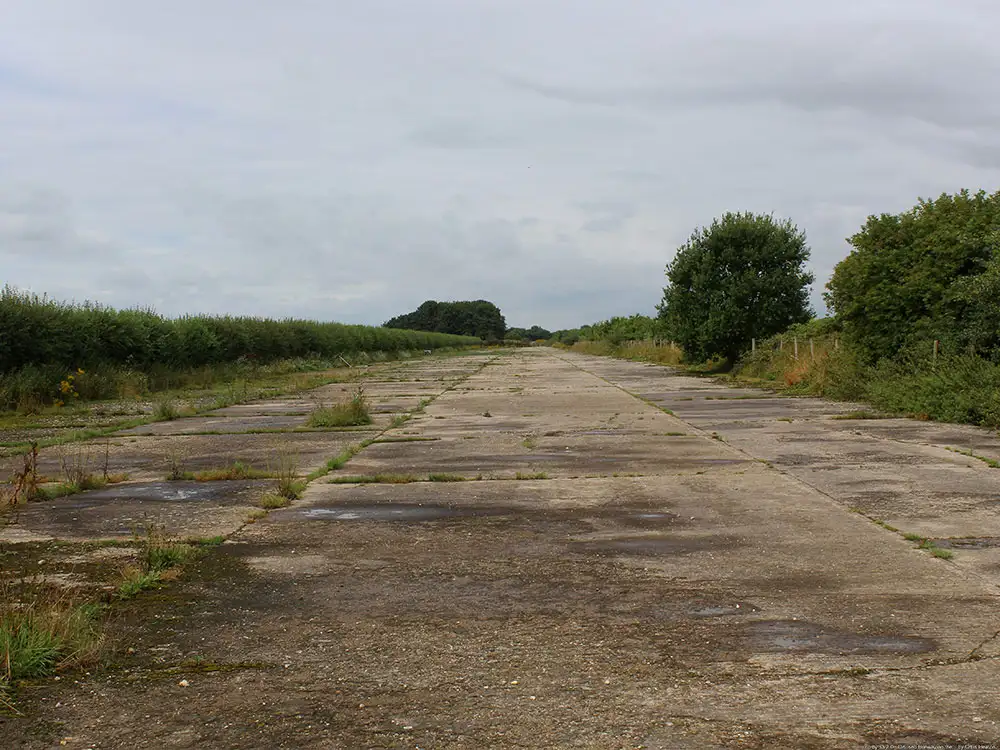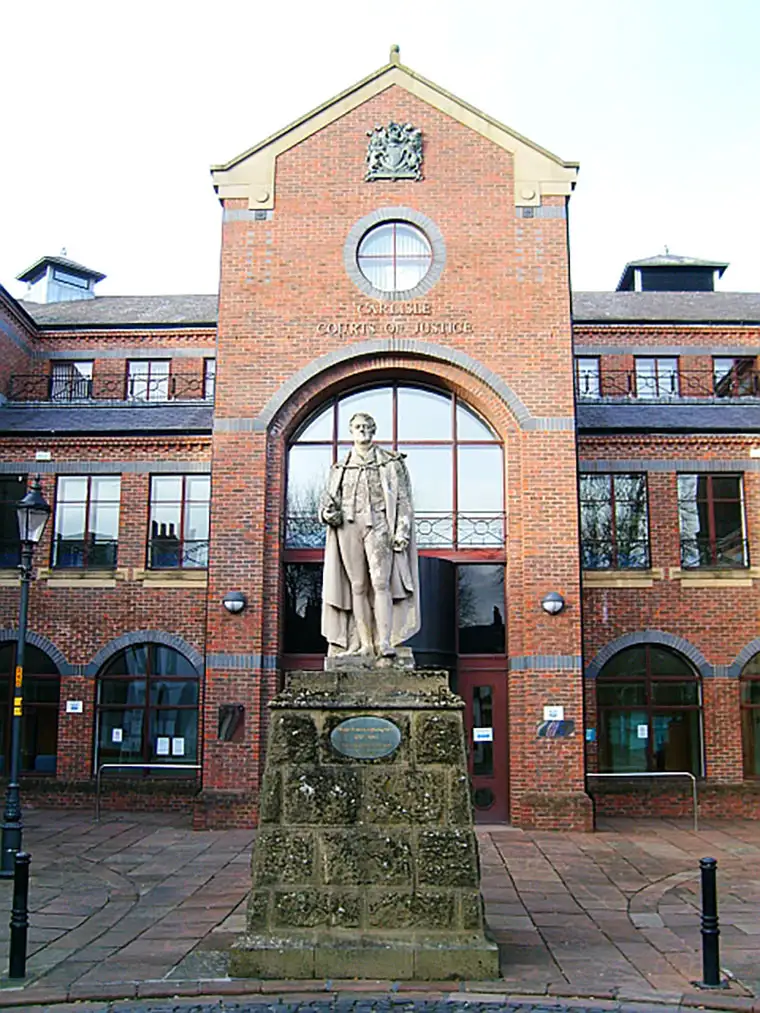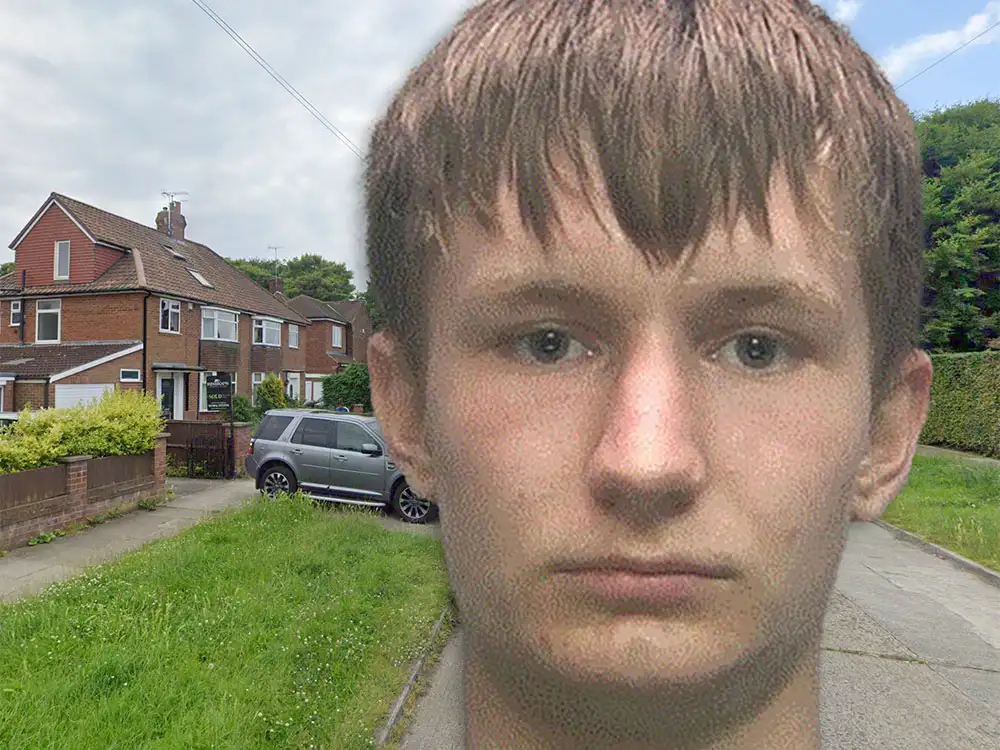Killer Jack Crawley ran to the home of a farmer after trying to murder a York man he had met on dating app Grindr, a jury heard.
Crawley, who allegedly struck the man to the head and body with a claw hammer after they met for a “quick sexual encounter”, ran off and went looking for “somewhere with lights on” as he made good his escape from the hook-up spot near Acaster Malbis airfield.
He told Carlisle Crown Court that he chanced upon the home of a “kind farmer” who took him in and drove him to York.
Crawley, “muddied and bloodied”, told the farmer he’d fallen off his bike after hitting a pothole. Believing his story, the farmer gave him a lift.
He admitted he then burgled a couple’s home in York, near where he had been dropped off, stealing clothes and shoes from the property in an attempt to find a disguise and evade capture.
The former doorman, now 20, who was working as a hospital security guard in Carlisle at the time, then travelled to Leeds, Bradford, Birmingham and Bristol, before turning up in Bath.
There he was arrested on suspicion of attempted murder while on bail for killing a Scots army veteran in Cumbria in an “almost carbon copy” of the incident in Acaster Malbis.

Prosecutor David McLachlan KC said the alleged York victim had picked Crawley up at an address in York before driving them to a secluded spot near Acaster Malbis airfield.
He said that after engaging in sexual activity, Crawley struck the named man to the head and body with a Stanley claw hammer. The man finally managed to escape after wrestling the hammer from Crawley, who had allegedly been smoking cannabis.
It was while being quizzed by Bath police in May – four months after the attack on 5 January – that Crawley told them where they would find the remains of the man he had allegedly murdered in Carlisle.
Cumbrian police found the skeletal remains of 56-year-old Paul Taylor, a married father-of-two, in a shallow grave, hidden in bushes, in Finglandrigg Wood nature reserve near Carlisle.

Crawley had arranged to meet Mr Taylor for a sex “hook-up” in a remote spot, but it allegedly turned into a grisly hammer attack which “completely smashed in Mr Taylor’s head”.
Crawley, of Sheehan Crescent, Carlisle, took to the witness stand yesterday (Tuesday) in the second week of his trial after denying the murder of Mr Taylor, claiming he died in a “bungled robbery” during an altercation, and the attempted murder of the man in York.
He also denies an alternative allegation of wounding the man in York with intent to cause grievous bodily harm, claiming self-defence.
His friend Marcus Goodfellow, 20, of Greystone Road, Carlisle, denies assisting an offender by allegedly helping Crawley dispose of Mr Taylor’s Vauxhall Corsa.
At a previous hearing, Crawley admitted unlawfully killing Mr Taylor, or manslaughter. He also admitted possessing an offensive weapon during the incident in York.
Shallow grave

Mr McLachlan said that Mr Taylor – who lived with his family in Annan, Dumfriesshire, near Carlisle but just over the Scottish border – was last seen alive by his wife at about 9.30pm on October 17 last year.
“Shortly after 11pm, Mr Taylor went out in his car across the border into England and he never did come back home,” added the prosecuting barrister.
Mr Taylor, who worked as a catering manager at Cumberland Infirmary where Crawley was a security guard, “literally vanished into thin air” and didn’t show up for work the following day.
“It has since been established that, unbeknown to his wife and his family, Paul Taylor had a sexual interest in men,” said Mr McLachlan.
“He would meet up with other like-minded males and engage in sexual activities at what are known as hook-up locations within the Carlisle area by making arrangements via gay dating apps such as Grindr and FabGuys.”
Mr McLachlan said that after killing Mr Taylor, allegedly by bludgeoning him “at least 10 times” in the head with a hammer, Crawley buried his body in a shallow grave after trying unsuccessfully to burn his body using petrol, charcoal and cigarette lighters he had bought from a shop.
It’s believed that Mr Taylor was killed in the early hours of October 18, by which time Crawley had taken possession of his Vauxhall Corsa and tried to sell it.
Crawley, who admitted taking cocaine and cannabis since his teens, said he had been “instructed” to steal and then sell a car by a gang of drug dealers.
He said he had been ordered to sell “weed” for them to repay a debt and that the Grindr app was one of the platforms he used to advertise drugs for sale.
He said he arranged to meet Mr Taylor for a sex hook-up with the intention of stealing his car and that when they met up at the rendezvous spot, he punched the former military man and then ran towards his car to try to steal it.
He said Mr Taylor grabbed his arm to stop him, so he punched him again, knocking him to the ground, at which point Mr Taylor hit his head on the ground. He checked for a pulse but there was none.
He said he then tried to burn his body and when this failed, he began hitting him with a “mallet hammer” in the hope that his body would “crumble and turn to ashes”.
When this in turn failed, he put the body in the boot of the car and drove it to the secluded wood, where he buried Mr Taylor’s body in a “bushy area”.
‘Looked like Hagrid’

Crawley was released on bail following his arrest for the alleged murder, on condition that he lived at his grandparents’ home in Carlisle and reported to the local police station thrice weekly.
But on New Years’s Eve, he disappeared and headed for Penrith in the Lake District. At a railway station in the town, a rail worker said she saw him wearing what was “obviously a fake wig and beard… like the character Hagrid in Harry Potter”.
Crawley then journeyed north and went on “a tour” of Scotland, taking in Glasgow, Aberdeen and Edinburgh. He then travelled from the Scottish capital to York, where he activated the Grindr app on a new phone, signing in with the fake name Kyle.
The following day, he went on Grindr and arranged to hook up with the man in York after sending him a lewd picture of himself.
In darkness on the late afternoon of January 5, the man collected Crawley in his car from an address in Reginald Grove, York, and drove them out to the airfield at Acaster Malbis where they engaged in sexual activity after Crawley allegedly smoked a cannabis joint and “looked nervous” while concealing a hammer in his waistband.
The man said that as they started to engage in sexual activity, he “felt a blow to the top and left of his head”. He pulled away from Crawley but was then struck in the eye.
Crawley, who denied also having a knife at the scene, then struck him “again and again to the left arm” with the hammer.
The man said he finally managed to wrestle the hammer from Crawley who “looked shocked” and ran away. The hammer was later found dumped near the airfield.
Mr McLachlan said it was a “premeditated attempt to kill”.
Following his arrest in Bath, when he was caught with a knife, Crawley told officers he had “been involved previously in the supply of cannabis and poppers”.
Crawley told the court he had bought the hammer because he was told by the gang “to break into someone’s house”.
He said that when he arrived in York, he was “planning to establish myself (as a drug dealer) in York on instructions of others, but it never worked out in the end”.
When asked if the alleged victim was the only man he had contacted on Grindr in the city, he replied: “No. I was contacting more than ten people that day, maybe more than 20.”
When asked by his barrister if he “knew where to go in York (for a sex hook-up), he said he “had a spot near the racecourse”.
He said that when they arrived at the location near the racecourse, the man said that it wasn’t discreet enough, so he drove them to the airfield in Acaster Malbis. He claimed he had acted in self-defence after the man attacked him.
The trial continues.
